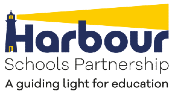LKS2 (Ages 7-9)
In LKS2 (Year 3 and 4) the curriculum continues to be underpinned by the Marwood School core values and subjects being grouped within four areas of learning:
- The Arts (English, Art and Music)
- STEM (Mathematics, Science, Computing and Design and Technology)
- Humanities (Geography, History and Religious Education)
- Physical and Social Development (PE, PSHE and RSE)
Summary of Lower Key Stage 2 (Year 3 and 4) Curriculum for Parents/Carers
The Arts
English
- Reading: Focus on reading a variety of texts, improving comprehension, and developing a love for reading.
- Writing: Enhancing skills in writing different types of texts, including stories, reports, and poems. Emphasis on spelling, punctuation, grammar, and handwriting.
- Spoken Language: Developing confident speaking and listening skills through discussions, presentations, and drama activities.
Art and Design
- Creativity: Developing creativity and skills in drawing, painting, sculpture, and other art forms.
- Technique: Children experiment with different materials and techniques, creating their own artwork.
- Art Appreciation: They learn about famous artists and their works, and begin to express their opinions about art.
Music
- Performing and composing: Developing musical skills through singing, playing instruments, and understanding musical notation.
- Pupils sing songs, play instruments, and perform simple pieces.
- Listening and Appraising: They listen to a variety of music and begin to express their preferences and opinions.
STEM (Science, Technology, Engineering and Mathematics)
Mathematics
- Number and Place Value: Pupils learn to understand and work with numbers up to and beyond 1,000, including place value, rounding, and comparing numbers. They also practice counting in multiples of 4, 8, 50, and 100.
- Addition and Subtraction: Children develop various methods for adding and subtracting numbers, including mental arithmetic and written methods. They solve problems involving these operations in different contexts.
- Multiplication and Division: Focus on mastering multiplication tables up to 12x12 and using these skills to solve problems. Pupils learn different strategies for multiplying and dividing larger numbers.
- Fractions: Introduction to fractions, including recognising and finding equivalent fractions, comparing and ordering fractions, and performing simple calculations with fractions.
- Measurement and Geometry: Understanding and using units of measure for length, mass, volume, and time. Pupils also learn about shapes, their properties, angles, and spatial reasoning.
Science
- Working Scientifically: Pupils develop skills in planning and conducting experiments, making observations, and recording results.
- Biology: They study plants, animals, and humans, focusing on life processes, habitats, and ecosystems.
- Physics: Children explore forces, magnets, light, and sound, understanding basic physical principles.
- Chemistry: They learn about different materials, their properties, and how they change.
Computing
- Digital Literacy: Children continue to develop basic computer skills, including typing and using software applications.
- Programming: They are introduced to coding, learning to create simple programs and understand algorithms.
Design and Technology
- Practical Skills: Pupils design and make products using a range of materials and tools.
- Evaluation: They learn to evaluate their own and others’ work, considering how it can be improved.
Humanities
Geography
- Locational Knowledge: Children learn about the geography of the UK and the wider world, including continents, countries, and major cities.
- Human and Physical Geography: They study physical features like rivers and mountains, as well as human activities and their impact on the environment.
- Geographical Skills: Pupils use maps, atlases, and digital tools to explore and understand geographical information.
History
- Chronology: Pupils learn about significant periods and events in British (e.g. Anglo Saxons and Vikings) and world history (e.g. early civilisations), developing a sense of chronology.
- Historical Enquiry: They use various sources to investigate the past and understand how historical events have shaped the present.
Religious Education
Physical and Social Development
Physical Education (PE)
- Pupils enhance their physical skills through various sports and activities, promoting fitness and teamwork.
- Pupils participate in swimming, dance, gymnastics, athletics and various ball games.
Personal, Social, Health and Economic Education (PSHE)
- PSHE: Pupils develop their understanding of health and wellbeing, relationships, and living in the wider world. This includes topics like mental health, personal safety, and understanding diversity.
- RSE: Aims to teach children about healthy relationships, respect for others, and the physical and emotional changes they experience as they grow.
Curriculum Map (2024-25)
Below you will find a curriculum map for 2024-25. If you would like to know more about this, please speak to Mrs Jones or Mrs Nelson (Class 3 teachers) or Dr Boon (Headteacher).



